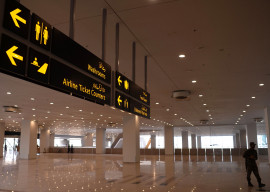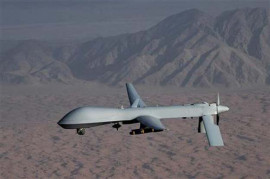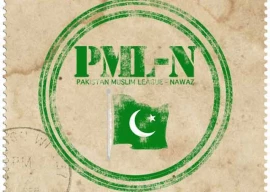
Mirza Waheed is from Srinagar and is currently Online Editor at the BBC’s Urdu Service in London. He spoke about his book and what it was like to grow up in Kashmir in the 1990s.
Q: To what extent is the story about you?
A: To be honest my childhood was quite different from that of the protagonist. I was born in Srinagar and my father worked with the Tourism department. As a result I lived in a different and very beautiful part of Kashmir. It was almost idyllic!
But of course things changed in the early 90s when I was still a teenager and conflict became an everyday reality. One incident that left a particularly deep impression on me was a security ‘crackdown’ in Srinagar. As is usual during a crackdown all inhabitants had to walk in single file to a field where we were required to gather. As I was walking, I saw a number of dead bodies that had presumably been killed in a so-called encounter. I realised that one of them was still alive and was asking for water. There was nothing I could do. These things change you.
Q: How did it change you?
A: I always say that our generation is marked for life. You no longer see the world with the same eyes. You even walk differently, more hesitantly, because you fear everything. You might be nabbed anytime on the street by the police or the BSF (Border Security Force) or by the army. We would witness violence first hand, and in the evening hear it reported on TV as though it was a thriller or a crime story — whereas what we were witnessing on the ground was a tragedy.
Q: What relationship did your generation have with India?
A: When you’re growing up, on the face of it everything seems okay. You watch Indian films, Indian television, eat food that comes from India, and your parents, uncles, relatives work for the government.
As you grow older you begin to make connections. Unfortunately, the security forces are what you see of India if you’re growing up in Kashmir. You don’t see the benign democracy that it still is, in my opinion, despite its flaws and contradictions. But when I grew up, all we saw was the machine gun and the bunker.
Q: Which is surely why the boys began crossing the border in the first place?
A: Of course, when hundreds of boys went over to Pakistan to become militants, it didn’t just happen overnight. There were years of pent up resentment, disillusionment and a sense of disenfranchisement. India has basically ‘managed’ Kashmir through client elites who it trusts to rule. Most people agree that most elections in Kashmir have not been fair.
Q: In the areas where you lived was the absence of young men noticeable?
A: Oh yes, very noticeable! You knew so-and-so person had probably gone across, some relatives might claim that he was ‘away on business’ while others in the same family would privately admit that he had become a militant.
Q: Was there a particular class that joined up?
A: People who don’t have a lot to look forward to will be more keen to take this step but it wasn’t just boys from poor backgrounds. One of the first commanders of JKLF who died in a battle with security forces in Srinagar, Ashfaq Majid Wani, went to the best school in Srinagar.
Q: Is there much being written about the experiences of Kashmiri people?
A: I heard someone comment recently that ‘the boys have grown up and they’re writing back’. There is a lot happening, people are writing fiction and poetry.
There are now two generations from Kashmir. There’s us, the ones who were teenagers when it all started and are now in our thirties. And there’s a generation who was born at the start of, or during, the conflict — people who are now in their 20s — and this is all they have seen. We still know of a past that was ‘normal’ but they’ve never seen anything like that.
Q: Are their voices being heard in India?
A: Yes, there are people who are very critical about what is going on and there is a growing circle of people who are telling the state that we have to listen to Kashmiris. It has taken a lot of dead people to get to this place, but one must recognise it’s a good thing.
Q: Did you find it strange that the Kashmir protest last summer got such little media attention?
A: A few newspapers picked it up but it didn’t get the attention it deserved. There were teenagers dying every day — 111 people died in the summer — but it was interesting that the silence included the Pakistani press. One analyst suggested to me that Pakistan was suffering from Kashmir fatigue. There has been a tactical change in the Pakistani state’s Kashmir policy; maybe there is some recognition that the tactic of forcing a solution hasn’t worked for Pakistan.
While India hasn’t been able to crush the will of Kashmiri people in the last 22 years Pakistan has failed to force a resolution. That’s where we are right now.
Q: Does the boy, who remains nameless, decide to cross over to Pakistan in the end?
A: He’s seen so much murder and death that all hope has kind of evaporated. But I have left it open as to whether he decides to leave. He picks up the bag he had initially packed to go to Pakistan as a militant. He may go, but deep down he doesn’t believe in the gun.
Published in The Express Tribune, Sunday Magazine, February 13th, 2011.


1731637727-0/Bear--(1)1731637727-0-165x106.webp)

1731619853-0/ice-cream-(1)1731619853-0-165x106.webp)
1708870589-2/PATS-(3)1708870589-2-270x192.webp)

1731647129-0/Untitled-design-(56)1731647129-0-270x192.webp)









COMMENTS (5)
Comments are moderated and generally will be posted if they are on-topic and not abusive.
For more information, please see our Comments FAQ